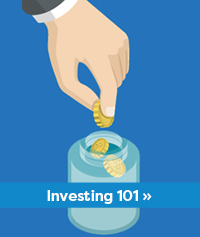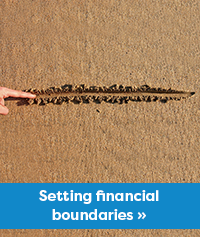Is Financial Independence/Retire Early (FIRE) Attainable?

A recent report suggests that 25% of adult Generation Zers plan to retire before age 55, with retirement savings underway for many already. While retiring before age 55 might not sound extraordinary, retiring before the age of 35 might. What personal sacrifices would you make if it meant you could grow your savings quickly, achieve financial independence, and retire decades earlier than your peers? Would you count every dollar, and avoid every ‘unnecessary’ purchase?
You may be familiar with the expression, everything in moderation, including moderation. While extreme saving can certainly help you reach your financial goals, it’s important to balance this with your happiness to avoid burning out. In this article, we’re going to explore the concept of Financial Independence/Retire Early (FIRE), and whether or not it is attainable for everyone.
What is FIRE?
FIRE is a financial movement that is defined by an extreme savings and investment lifestyle that borders on frugality. Essentially, FIRE requires you to spend less than you earn and invest the difference in low-fee products such as index funds, ultimately saving between 50 to 70% of your annual income. By putting space between your expenses and your income, you’re creating more time for retirement. This sounds relatively simple, but you must remember that the goal of FIRE is to save enough to retire decades earlier, meaning you have to be strategic with both your expenses and your leftover income and investments in order to sustain you long-term.
How do I achieve FIRE?
Achieving FIRE requires a combination of planning, discipline and investing. You start your plan for FIRE by deciding at which early age you would like to retire. This could be any time before 55, including in your 40s, 30s, or even 20s if you’re very ambitious. Some folks follow the Rule of 25, which is when your net worth is 25 times your yearly expenses. So, if you spend $40,000 a year, you will want your net worth to be at least $1,000,000. You can also plan ahead by adding multiple streams of income, such as part time employment or passive income that doesn’t detract from your main career.
Discipline is another important component in achieving FIRE, which can take many forms. This can look like downsizing to a smaller home, developing strict budgets to ensure you always spend significantly less that you earn, using credit card rewards to pay for non-essential purchases such as travel, buying a used car rather than new, and opting out of paying for things like streaming services or expensive phone plans. This kind of discipline would require you to carefully consider your wants versus your needs and prioritize meeting the latter only.
Finally, with any residual income you accumulate while striving towards FIRE, it’s recommended that you put it into low-fee investment vehicles, such as Registered Retirement Savings Plans (RRSPs), Index-Linked Term Deposits (ILTDs), Tax-Free Savings Accounts (TFSAs), and Guaranteed Investment Certificates (GICs). To successfully retire early, you don’t simply want to save 1,000,000 in cash, you want diverse investments that will continue to gain interest over time. This way, you’re not at risk of burning through your savings too quickly.
Does FIRE = Financial Health?
The dilemma with FIRE is that it suggests that financial health and life happiness are achieved through no longer having to work and accomplishing that goal as soon as possible via extreme saving. The truth is, there is no ‘one size fits all’ when it comes to your financial wellness or contentment. For many individuals, their idea of financial health might simply mean their income is greater than their expenses, or that their full-time job allows them to pay their bills in full. Others may find themselves in a career they love and take great fulfillment in their daily accomplishments.
Early retirement can also look different for everyone. While many proponents of FIRE plan to never work again once they reach financial independence, others may instead turn to a profession they enjoy without the pressure of earning a living wage or spend time volunteering. This would allow them more time to do the things they love, such as traveling, spending time with family, or pursuing a hobby. Ultimately, your benchmark for financial health is determined by you, and once you determine that, you may decide FIRE isn’t your end goal after all.
Is FIRE attainable for everyone?
The truth is, FIRE is an extreme savings lifestyle, and this may make it unfeasible for many. While some have room in our budgets to cut a few costs or can manage to live a little more frugally to save money for a celebratory evening out or upcoming vacation, others are limited by their ability to earn or save extra income. This could be due to many different factors, such as dependents, health issues, unexpected expenses or financial emergencies. To achieve FIRE, you need to have minimal debt, which means paying off any student, vehicle or personal loans, which might not be possible right now.
It's also important to remember that every day is a gift, and while it’s good to be financially prepared, it’s also great to enjoy moments today. Only you can weigh the personal benefit of achieving financial independence against the cost of getting there extremely early. If enjoying sporting events, taking a trip once a year, or even buying your favourite treat at the store improves your day-to-day living, that may be reason enough to work towards a later retirement.
How else can I improve my financial health and plan for retirement?
There are elements of FIRE that are within reach for most people, without having to worry about frugal spending, multiple streams of income, and a net worth that will sustain you for the next 40 years. You can make improvements to your overall financial health by developing an annual, monthly or weekly budget to find small ways to save money. You can also still plan for retirement by looking at the low-risk investment options we’ve outlined above, such as RRSPs, ILTDs, TFSAs and GICs. Simply opening and contributing to one of these investment vehicles could take you a long way towards saving for your eventual retirement. Another truth carried over from FIRE is that the earlier you start investing, the more you can earn from compound interest. And the more you save, the sooner you can comfortably retire. So, set your own goals for your financial wellness, and strive for your own definition of happiness, while remembering that savings don’t have to be extreme to have a big impact on your future.
If you have any questions about reaching your financial goals or would like to speak with a financial advisor about your retirement savings, you can reach out to a member of our team any time at info@cua.com, by booking an appointment online or by calling 902.492.6500






